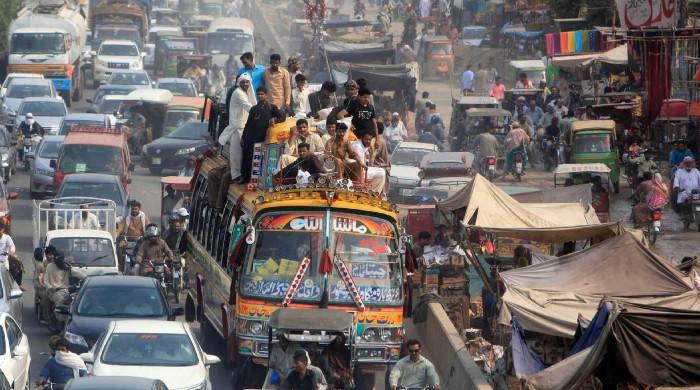New Bill Aims to Regulate Housing Societies in Punjab
The Punjab government has put forward a bill designed to create master plans for each district within the province. This initiative seeks to control the unstructured growth of housing societies throughout Punjab.
However, the proposed law has drawn criticism from various quarters, including lawmakers and urban planning experts. Concerns have been raised that it would centralize authority, taking away a vital constitutional role from elected local governments and giving it to appointed officials.
What the Bill Envisions
The Punjab Spatial Planning Authority Bill 2025 was presented in the provincial assembly on March 7. It suggests establishing a central Punjab Spatial Planning Authority responsible for approving and assessing land use and urban planning strategies for all 41 districts in the province.
This 18-member authority would be led by the Chief Minister of Punjab, with the Minister for Local Government serving as the vice chairperson. The Authority would also consist of ten bureaucrats, such as secretaries from housing, local government, law, and agriculture, along with five specialists and a director-general, all appointed by the chief minister.
The legislation does not specify the qualifications or backgrounds of these five experts.
At the district level, the bill proposes establishing District Spatial Planning Agencies, each headed by the deputy commissioner (DC). These agencies would be tasked with recommending land-use plans for their districts and ensuring the implementation of approved plans.
The bill also outlines key planning principles to guide the creation of master plans, including promoting sustainable development, renewable energy, natural resource conservation, equitable access to services, preservation of agricultural land, and reduced car dependence.
Government’s Rationale for the Bill
The bill was referred to the Punjab Assembly’s standing committee on local government for review after its introduction. With the ruling party holding a majority in the provincial assembly, the bill is expected to pass soon.
During committee discussions last month, the government emphasized the need for a legal framework to address the rapid and unauthorized conversion of agricultural land into urban areas.
A presentation shared with lawmakers on March 13 showed that over 225,000 acres of farmland have been consumed by 6,000 private housing schemes across the province.
Officials stated that this uncontrolled expansion significantly contributes to increasing smog in Punjab, where Lahore consistently ranks among the world’s most polluted cities.
The new law aims to restore order by designating specific zones for residential, commercial, educational, and recreational purposes in each district, as well as establishing a Central Business District (CBD) in each area.
However, the bill has faced criticism, even from within the ruling party.
One member of the provincial assembly, argued that the bill’s top-down approach to planning contradicts global best practices.
He stated that land-use planning should remain with local governments and pointed out that the ruling party had pledged to empower local governments in its 2024 election manifesto.
Under Punjab’s Local Government Act 2019, creating land-use plans is a function of elected local bodies. However, Punjab has not had elected local governments since December 31, 2021, when the last term expired. Elections have not been held despite the constitutional requirement for devolved governance.
The provincial government is reportedly working on a new local government law to replace the 2019 one.
Government Perspective
The Minister for Local Government and Community Development, defended the bill as a vital step toward coordinated urban development.
He stated that housing societies were previously being built on green areas due to the absence of master plans, with only Lahore having one.
He explained that multiple entities were creating overlapping land-use plans, leading to confusion and inefficiency.
The Project Management Unit (PMU) under the minister’s office has developed and notified land-use plans for approximately 12 out of 41 districts for the next 20 years, according to the PMU’s website.
However, the master plan for the Lahore division has not been finalized due to ongoing litigation.
It is unclear why these 12 plans were finalized before the bill was enacted. The minister did not address this question at the time of filing.
Furthermore, the minister asserted that public consultations were not necessary before drafting the 12 land-use plans, arguing that engagement with relevant stakeholders was sufficient.
He also insisted that the government could not delay finalizing the master plans until local bodies are restored.
He defended the proposal to appoint a Deputy Commissioner (DC) as head of the District Spatial Planning Agencies, stating that local government heads would be included in these agencies.
Regarding compliance from powerful housing schemes, he stated that their own regulations require them to follow official master plans once finalized.
There are at least five such housing schemes in Punjab.
Expert Opinions
Urban planning professionals have expressed concerns about the bill’s centralised structure and lack of democratic oversight.
One urban development specialist stated that planning is a local government function worldwide and that a one-size-fits-all approach is not suitable.
He argued that the Authority should primarily consist of subject-matter experts, not bureaucrats.
He criticised the law as overly bureaucratic and stated that governing a province with over 127 million people from an office is not feasible.
He also criticised the decision to place DCs as heads of local planning agencies, arguing that these agencies should be headed by mayors.
An environmental lawyer and activist echoed these concerns, adding that the constitution calls for building the capacity of local governments.
He pointed out the lack of public input or environmental assessments in the bill before finalizing master plans.
However, he acknowledged the bill’s promising elements, such as its emphasis on equity and sustainable development, and suggested that it could potentially control powerful development authorities.
He noted the ambition of the bill, particularly at the district level.



Comments (0)
No comments yet. Be the first to comment!
Leave a Comment